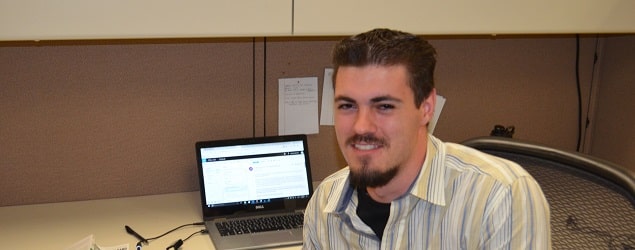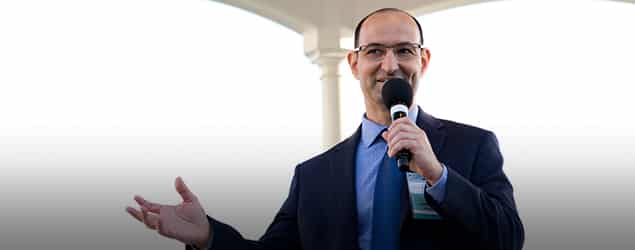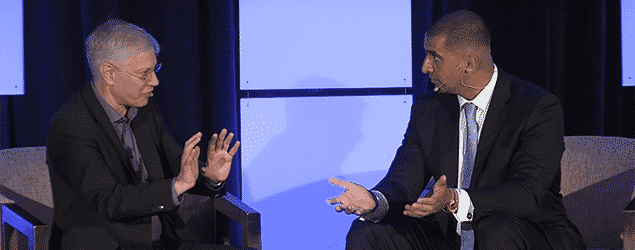Meet the Interns: Zach Johnson

Each year, the Ayn Rand Institute hosts seasonal interns who help with projects and tasks while engaging in educational activities tailored to their knowledge of Rand’s ideas and their own research interests. This summer, in partnership with the Charles Koch Institute, five interns attended OCON in Pittsburgh and then came to work in our Southern California offices. An additional intern joined ARI from the Lion Rock Institute in Hong Kong. In this series, we will introduce you to them.
Zach Johnson is a philosophy major at St. John’s University in New York City. Johnson, a senior, says he became a philosophy major because he is “interested in the connection between ethics and metaphysics, conceptions of human beings, free markets, and the thought of Friedrich Nietzsche. I’m also interested in logic, Friedrich Hayek, and education’s role in social change.” He explains that he had “great English teachers, especially in high school,” who inspired him to read even more philosophic texts. “I was stunned by Plato’s Republic, along with Nietzsche’s Beyond Good and Evil and Thus Spoke Zarathustra. I’ve been hooked ever since.”
We caught up with Johnson to talk about school, life and Ayn Rand.
When did you first discover Ayn Rand?
I heard about Ayn Rand often in passing, but didn’t really discover her until junior year. At that point, I found myself assigned Harry Binswanger’s book How We Know in my job as a research assistant for philosophy professor Douglas B. Rasmussen. After that, I wanted to learn Rand’s epistemology on my own through Introduction to Objectivist Epistemology. Rasmussen gave me his copy — it’s from 1979 and cost $1.75 back then.
Favorite Ayn Rand Character and why?
So far, I’m most interested in Gail Wynand. I think the character says a lot about the pursuit of power. I’m hoping that gives insight into Rand’s view on leadership.
How did you come to ARI?
I came to ARI through the Koch Fellow Program. ARI is philosophically oriented, their views are a good fit for me, and I’ve had the opportunity to look into education policy — my foremost interest.
Favorite Ayn Rand quote?
“There is no difference between communism and socialism, except in the means of achieving the same ultimate end: communism proposes to enslave men by force, socialism — by vote. It is merely the difference between murder and suicide.”
What do you love about where you go to school?
New York City? I’ll defer to Ayn Rand on that one.
In your bookshelf, you love . . .
There are too many! But as I move further into public policy, Jared Meyer’s book How Progressive Cities Fight Innovation is a really worthwhile and inspiring read. It’s concerned about the future, takes it seriously, and provides a roadmap for thinking about all kinds of policy domains.
What’s your hobby?
It’s really philosophy. It’s hard to think of things I’d rather do instead, at this point. But I enjoy a nice cigar.
Where are Ayn Rand’s ideas needed most today?
I think we need them in education. Education is completely collectivized. There’s no innovation, no personalization, no choice, and hardly any quality. It’s like that socialist country that only provides one brand of toothpaste, and charges an arm and a leg for it. We can do better.



